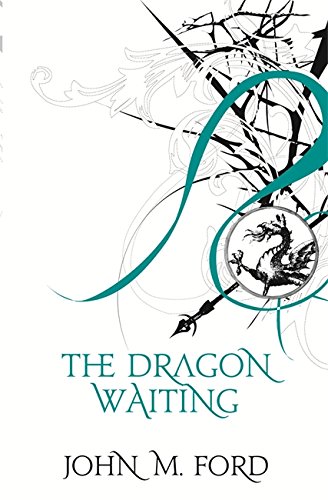A strength of the novel is Ford’s skill at creating interesting characters and a vivid sense of place. He introduces our four protagonists (Hywel, a wizard from Wales, Cynthia, a physician from Florence, Dimi, the exiled heir to the Byzantine throne, and Gregory, a mercenary) at the start in four separate chapters, creating a distinctive portrait of each so that by the time they meet each other, we can understand them. The many different settings, all across Europe, are well-realised and rendered with believable historical detail. Both these factors draw the reader into the story and immerse us in what’s happening.
However, for anyone not well-versed in Medieval history, the book can be difficult to follow. I struggled at points to know what was happening, though I carried on reading all the same (which is a testament to Ford’s storytelling abilities). While the writing style is as streamlined as it can be, the subject matter and plot mean that it’s nevertheless dense and complicated, meaning that it’s not always the most accessible. That’s not a bad thing, but it’s worth taking note of before reading (there is a fan-made concordance available for anyone who gets stuck).
What’s clear even to me, though, is that this is a book that demands your attention. In writing The Dragon Waiting, Ford evidently thought deeply about the forces that shape history, and how we can play our part within them. It’s rare for me to think upon finishing a book ‘I have to read this again’, but that was the case here, for a whole multitude of reasons. What’s really impressive to me is just how much Ford managed to pack into his narrative, and it makes me want to go back and try to pick up on everything I missed. I don’t know if I’m really qualified to judge how successful this book was, given that I didn’t manage to ‘get’ all of it, but I can appreciate what Ford was doing and his skill in achieving it.
Review by Charlie Alcock

 RSS Feed
RSS Feed
